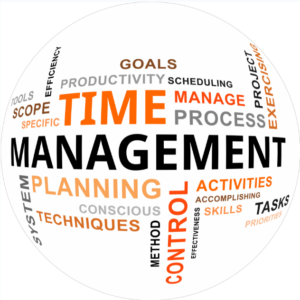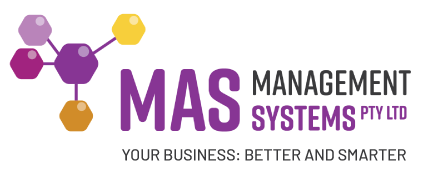The Lab Manager Conversations part five – Learning
We’ve been speaking to lab managers and leaders about their roles and challenges. These conversations have been collated into a series of articles that will probably resonate not only with lab leaders, but those across other businesses as well.
While their pathways may have been somewhat different, all our respondents have clocked up well over 10 years of experience prior to their current roles. They also cover the spectrum of calibration, chemical, microbiology, electrical, inspection and environmental laboratories.
And although they were pleased to talk through their issues, by request we’ve changed their names to maintain confidentiality.
Ongoing learning for managers
 While all our respondents put a high value on training for their staff, it seems that their own training and development tended to take a back seat. So how do they keep up to date and their skills honed?
While all our respondents put a high value on training for their staff, it seems that their own training and development tended to take a back seat. So how do they keep up to date and their skills honed?
Matthew enjoys the use of technology to make his job easier.
“Back in the day (and actually it wasn’t that long ago!) all the information was written down in a book. Now you can use an iPad or a tablet, take that with you on site and send those results straight back to the lab. Getting those results in real time has been a game changer. So right now, I’m really enjoying learning about different technologies and how they can help.”
Sarah encourages staff to learn on their own and models this behaviour.
“Instrument suppliers are an excellent source of information and are happy to discuss how a lab can do things better or differently. The bonus of course is that they can potentially sell you some equipment! But you’ll be surprised at the level of rapid innovation that’s occurring that could benefit your lab.”
She cites this example:
“Staff had been talking about how time consuming it was to prepare solutions. I remembered a conversation I’d had with a supplier about this, so I did some research and tracked them down. I found an autosampler for making calibration solutions and since it met our requirements, I put through the paperwork and requested it. It frees up a lot of staff time which is great. Just goes to show what can happen when you have those conversations!”
Keeping up with the trends
Daniel stays current by reading trade journals and belonging to professional associations.
“Trade shows are also important to see what everyone else is doing. We often have a stand at these as well. In terms of more formal learning, I’m not sure what would be useful in my current role. Perhaps an MBA ‘core skills’ course or refresher could be helpful for people who have been in the workforce for a while.”
Neil doesn’t do any formal learning but instead is driven by his clients.
“If a client wants a particular test that I don’t do, I’ll research how to do it. As a small business owner trying to grow my business, it’s in my best interests to go develop a reputation for finding solutions.”
The take-home message with this is to understand that training and maintaining competence take on different forms. Just because you’re not learning a new task in the lab, doesn’t make it any less important. Sometimes reading an article (just like this one) is enough.
The critical piece is to record this somewhere in your system. And if your paperwork is too complicated for recording this kind of thing, then why not create something that better suits your needs? A simple log or note in the calendar might be all that you need!
Learning through networking
 Opinion was somewhat divided about networking. Some saw it as very important.
Opinion was somewhat divided about networking. Some saw it as very important.
“Networking done well is where you learn from other people,” says Chris. “Developing those interpersonal relationships gives you the opportunity to really find out what other people are working on. And sometimes that can lead to valuable collaborations.”
Matthew: “I’m not very social so I tend to avoid those large gatherings. And with Covid there wasn’t the opportunity anyway. I’m happy to catch up with former colleagues but I tend to avoid those professional association meetings. But now that you’ve brought it up, I feel like I should be making the effort!”
Daniel attends events but it’s not his preferred way to connect.
“As I get a bit older, I’ve lost a bit of confidence and desire to do it,” he explains. “Fortunately, I have extroverted business partners who are excellent networkers! They can lead the discussions and shake the hands which leaves me to be a bit more in the background to listen!”
A staff incentive
Lauren enjoys networking events but often finds she doesn’t have time to attend.
“Sometimes I’ll get one of my staff to go along in my place. As well as giving them the opportunity to interact, it shows them that I trust them to represent the lab and the business. Of course, they need to report back on what they learn and any insights, but I think it works well as an incentive.”
Neil doesn’t belong to any industry groups and doesn’t network.
“This industry is VERY competitive, so unfortunately networking isn’t valuable for me. I’d be concerned about sharing that information and losing clients. That might change as my business grows.”
Finding your tribe
We agree, networking is not for everyone! It also sometimes has a bad name because of the expectation that you have to share everything you know and bring more people into the network, like some sort of pyramid scheme.
There are often business networks that lab managers and owners can be a part of. They might be location-based rather than attached to an industry or professional association. You don’t have to schmooze with your competitors if it doesn’t make you comfortable!
Let’s face it, even in a government setting labs are businesses. Networking is a good tool for growing the pool of potential customers or learning new skills. But if you have to force yourself to enjoy it, then it’s probably not the best tool for you.
Time management
 As we mentioned last week, all our respondents agreed that time was their most valuable – and often scarce – resource.
As we mentioned last week, all our respondents agreed that time was their most valuable – and often scarce – resource.
While staff management was seen as important, setting boundaries seemed to be the key to getting work done. This was particularly the case if a manager was new to the role.
“If you’re learning how to be a supervisor and they’re learning how to interact with you, staying open to what they need is important,” said Lauren. “But you still need to be doing your job. So be really clear about your availability right from the start. Make your expectations evident. And if you’ve got time blocked out in your calendar, stick to it unless there’s an emergency.”
Because teaching and mentoring is part of her role, Lisa tries to incorporate this into her activity blocks:
“If I’m planning to show someone how to do a particular test, I’ll block out time for them to observe while I’m doing it. The time this will take obviously depends on the test and the person, but it means I’m doing my technical work and training at the same time. Carving my day into time blocks is the most effective way for me.”
A valuable resource
Time blocking appeared to be the most popular method for the majority of our respondents. However, for small business owners, this doesn’t always work out.
“In your own business, you’re always driven by the needs of your customers,” says Brian. “I may have intentions of doing certain things during the day but then in walks a customer. I often find myself coming in really early just to attend to tasks before the phone starts ringing or someone walks in. Because in a small business, you can’t say no.”
Of course, the issue of time as a resource is something that isn’t mentioned in accreditation or certification standards like ISO 17025, ISO 15189, ISO 17020, or ISO 9001. The effect of poor time management and insufficient time often rears its ugly head through non-conformances, customer complaints and failing QC.
So next time you find something goes wrong, think about whether the root cause is because of lack of time. Then set about righting that by looking at Lean ways of working. You can try incorporating multiple aspects of your role into a single activity block like Lisa. Or perhaps restructuring to allow people with more time up their sleeve to learn some of the things that take your time from you.
Next week we’ll talk about equipment and safety.
Download the article The Lab Manager Conversations series – part five





